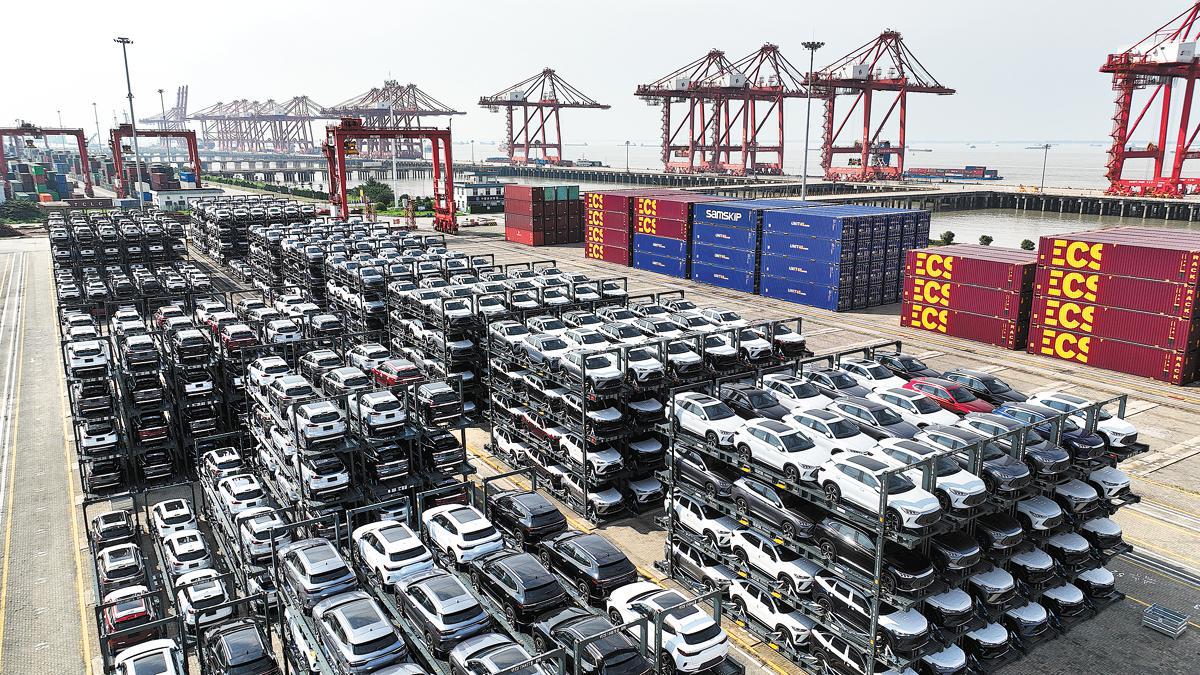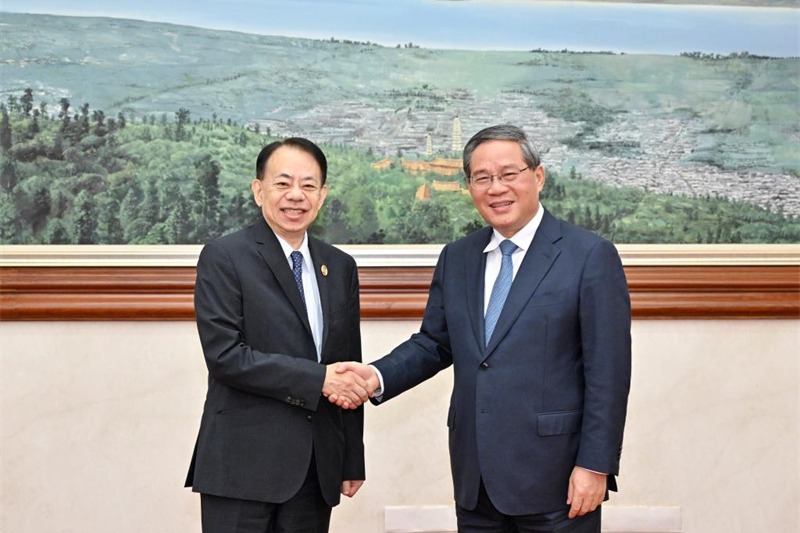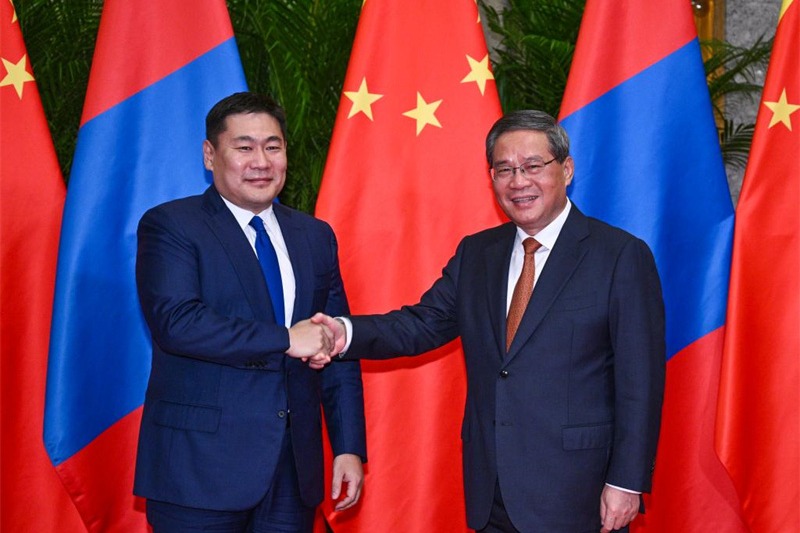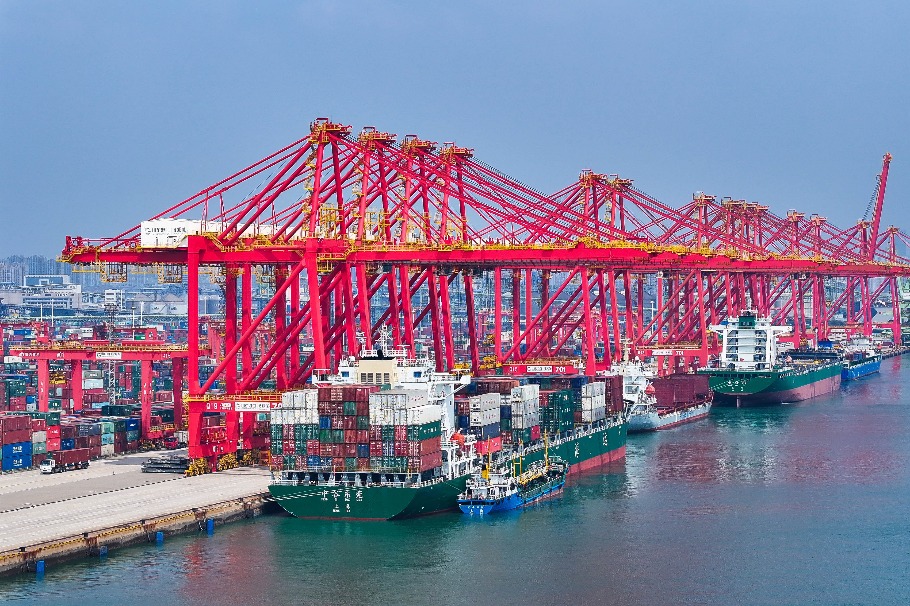Foreign trade resilience seen


China's foreign trade is expected to withstand the challenges posed by a complex global environment and demonstrate hard-won resilience to bolster the country's economic growth in the second half of this year, government officials and analysts said on Thursday.
They also urged more policy support to cope with weakening external demand and potential risks, as global economic recovery remains sluggish, major developed economies are adopting contractionary policies, and various factors increase market instability and uncertainty.
In the first half of 2023, China's foreign trade reached 20.1 trillion yuan ($2.8 trillion), up 2.1 percent year-on-year, data from the General Administration of Customs showed.
In dollar terms, total foreign trade came in at $2.92 trillion during the period, down 4.7 percent year-on-year.
While concerns have been raised about the growth rate of China's foreign trade, Lyu Daliang, director-general of the administration's statistics and analysis department, said the government remains confident in the overall stability of the sector. This confidence is supported by positive indicators such as second-quarter readings, as well as growth observed on a quarter-on-quarter or month-on-month basis in the data for May and June.
Lyu said the cumulative effect of China's unwavering commitment to openness and its proactive efforts to advance international economic and trade cooperation is now becoming evident, driving both the economic growth and the stability of foreign trade in terms of scale and structure.
"This is the first time in history that China's foreign trade value has exceeded 20 trillion yuan during a half-year period," he said, stressing that China is capable of consolidating its market share and maintaining its position as the world's largest goods trading nation in 2023.
Guan Tao, global chief economist at BOC International, predicted that China's around 5 percent GDP growth target for the whole year can be accomplished through the implementation of effective fiscal policies and the ongoing optimization of Chinese exporters' industrial structure and products portfolio.
"The stability of the foreign trade sector plays a crucial role in driving China's annual economic growth," said Wu Haiping, director-general of the GACs' department of general operation.
Looking ahead to the second half of the year, the cumulative year-on-year growth rate of export value in the third quarter is likely to remain at a lower level, while a modest upward trend is expected in the fourth quarter, said Zheng Houcheng, chief macro economist at Yingda Securities Co Ltd.
According to Guan, from BOC International, China will benefit from several advantageous conditions in the medium to long term. The country's rapid industrialization and urbanization, coupled with significant growth in its human capital market, contribute to its immense potential.
As China embarks on an era of innovation-led growth, the acceleration of technological progress becomes increasingly vital in sustaining a prolonged period of robust economic expansion, Guan said. These factors underscore the significant potential that lies ahead for China.
For instance, driven by three major tech-intensive green products — solar batteries, lithium-ion batteries and electric vehicles — China's exports of electro-mechanical products increased 6.3 percent on a yearly basis to 6.66 trillion yuan in the first half, accounting for 58.2 percent of its total exports, Customs data showed.
As China's yuan-denominated foreign trade declined by 6 percent year-on-year to 3.89 trillion yuan in June and its yuan-denominated exports dropped by 8.3 percent year-on-year, Zhou Maohua, an analyst at China Everbright Bank, said the government should use more flexible adjustments and support measures to alleviate difficulties and promote the steady and healthy growth of foreign trade as the next step.
Li Dawei, a researcher at the Academy of Macroeconomic Research in Beijing, said that further enhancement of foreign trade growth relies on bolstering the core competitiveness of export products and better meeting the demands of overseas customers. Li also said China needs to accelerate the transformation and upgrading of industries by promoting green, digital and intelligent initiatives.
Wang Yongxiang, vice-president of Zoomlion Heavy Industry Science and Technology Co, a Changsha, Hunan province-based engineering equipment manufacturer, said his company will adopt a "go green" approach to further reduce carbon emissions and save on the cost of diesel fuel. Many domestic manufacturers have accelerated the pace of developing electric-powered construction machinery to secure an increased share in overseas markets, Wang added.




































